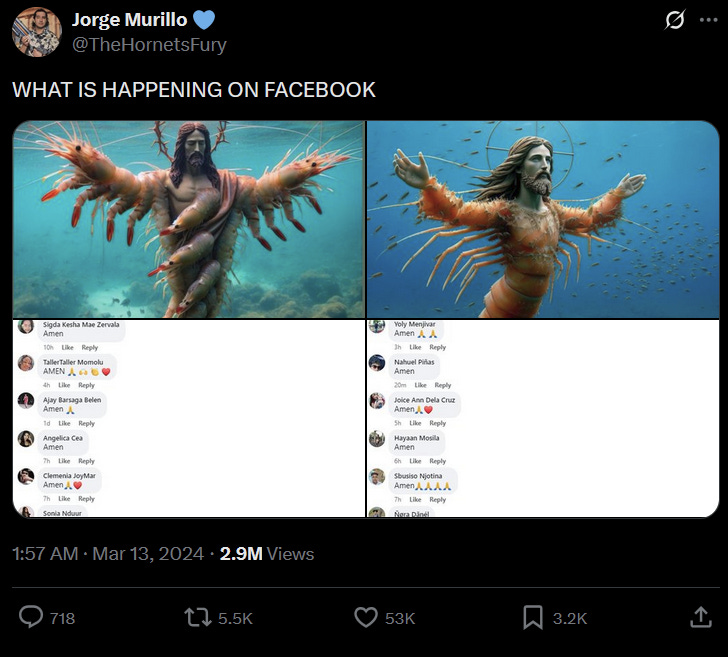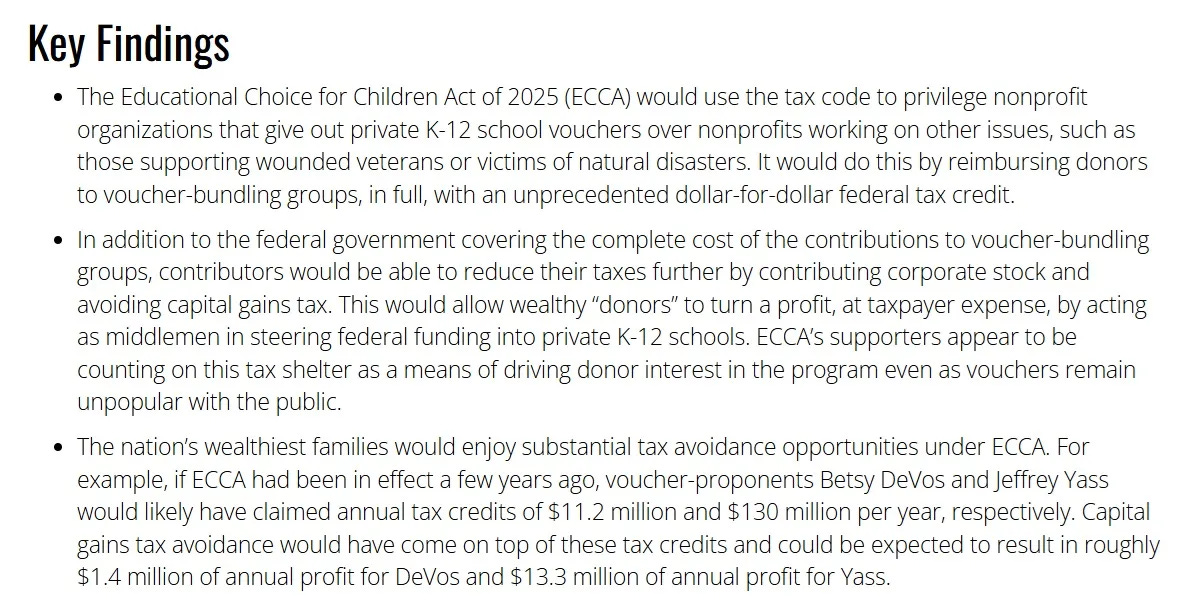- Scholastic Alchemy
- Posts
- Links and Commentary 5/16/25
Links and Commentary 5/16/25
Dead Schooling Theory, the ECCA, School Choice? Caveat Emptor,
Welcome to Scholastic Alchemy! I’m James and I write mostly about education. I find it fascinating and at the same time maddening. Scholastic Alchemy is my attempt to make sense of and explain the perpetual oddities around education, as well as to share my thoughts on related topics. On Wednesdays I post a long-ish dive into a topic of my choosing. On Fridays I post some links I’ve encountered that week and some commentary about what I’m sharing. Scholastic Alchemy will remain free for the foreseeable future but if you like my work and want to support me, please consider a paid subscription. If you have objections to Substack as a platform, I maintain a parallel version using BeeHiiv and you can subscribe there.
Dead Schooling Theory
This first one is going to be a long one. I should probably just make it a post of its own but I don’t want to wait and lose my train of thought or let the discourse move on without my two cents. What if we are seeing a world in which a large portion of what happens in college courses is actually the work of AI? Today I want to coin a term: Dead Schooling Theory.
I mentioned last week that a New York Magazine article about how everyone cheats in college is prompting a number of responses. The discussion has not slowed down. One thing I pointed out is that broad cheating like this is a natural outgrowth of seeing education as merely an instrument for accomplishing something else. You don’t go to college to learn anything so much as to move on to the next step, a career.
The bigger issue is what happens if we have successive years of graduates who have not had a genuinely meaningful educational experience. Are we on the way to creating a nation of clueless dumbshits?
Have we not already achieved this, though? Is Big Balls, the notorious member of Elon’s Doge Army not already a fully realized dumbshit?
I’m more worried about the Wendys of the world, the students who have internalized a transactional model of education that has turned students into customers, where the exploration and development of the self is secondary to doing whatever the transaction demands to continue to progress through the system. Wendy exists in a system predicated on what I call “indefinite future reward” where there is no reason to do something in the moment. All of the payoff is at some future point. Get good grades in high school to get into college. Do well in college so you can get a good job. Get a good job - meaning high paying - so you can insulate yourself from the uncertainty of the world as much as possible.
Wendy is one of the people interviewed in the NY Mag article. Warner goes on to call this a transactional view of education. The whole point for these kids is that education is merely something you’re trading for future income and has little to no value in the moment, hence not caring if you learn nothing because you let LLMs do all your coursework. Indeed, some professors, especially for online courses, are encountering students who are, it turns out, bots and not human at all.
Let’s take a page from Dead Internet Theory and call it Dead Schooling Theory. Dead Internet Theory argues that much or even the vast majority of internet activity is actually being done by bots, algorithms, and AI that all feed back on each other. Generative AI bots produce content that other bots engage with according to whatever rules govern their algorithmic behavior. That incentivizes the generative bots to make content that is more and more geared toward the engagement bots. This is why you get posts on Facebook depicting Jesus as some kind of shrimp-human hybrid.

It seems very unlikely that there are thousands of people commenting amen with hearts and prayer hands to a crustacean Christ all within minutes of a post appearing. It seems very unlikely that users are out there generating picture after picture of shrimp Jesus for months on end. This is the dead internet. Bots make content for bots driving endless loops of posts and engagement with no human audience in mind and, the more conspiratorial side goes, Facebook et al don’t care because it drives ad revenues.
So, in addition to students using LLMs for all their work, what if you also let LLMs do your grading? Dead Schooling Theory.
When Diane Gayeski, a professor of strategic communications at Ithaca College, receives an essay from one of her students, she runs part of it through ChatGPT, asking the AI tool to critique and suggest how to improve the work.
“The best way to look at AI for grading is as a teaching assistant or research assistant who might do a first pass … and it does a pretty good job at that,” she told CNN.
We’re in a world where students could plausibly use an LLM to write their assignment and then the professor would use an LLM to grade that assignment and provide feedback. At that point we’re in a disconcerting loop whereby that feedback goes back into the prompt and used to improve the next essay and so on. The humans don’t even need to be involved at all if you consider that many courses use an online learning management system to handle all student submissions and return grades and feedback. No humans means it’s Dead Schooling. Like Facebook, colleges have little financial incentive to crack down on this behavior. They earn tuition dollars whether a student is real or fake, whether professors grade by hand or automate it away.
The only way forward is to reject the idea that an education is just about moving on to whatever’s next. If it’s a transaction, we’ll automate it. If it’s instrumental, we’ll automate it.
See also: Why write if no one will read it?
Education Choice for Children Act
The budget reconciliation bill in congress now includes the Education Choice for Children Act. It’s as ugly as it sounds and an obvious “fuck you” to anyone who doesn’t have tons of financial assets needing a tax shelter.

source
Not great! Call your senators!
School Choice? Caveat Emptor
One of the big problems with charter schools is that sometimes they suck and they close. When this happens, it is very disruptive to the children and the communities they serve. Sometimes they close without warning, leaving parents to pick up the pieces again and again.
Some D.C. families said they feel stranded again after a second charter school decided to close its doors this school year. 7News looked into the challenges the families are facing with charter schools and who will be held accountable for charter schools taking millions of public dollars, then shutting down operations.
7News spoke with Littyce Boone, who is looking for another school for her granddaughter.
“Frustration is the main word,” Boone said. “I'm tired, I'm tired.”
Three days before the start of this school year, Eagle Academy shut down because of financial issues.
“Now we find out last week that Hope Charter is closing,” said Boone. “So yes, it's déjà vu all day long.”
This, I think, the plan for schooling nationwide. Certainly it’s what parental choice advocates envision as they push vouchers like those envisioned in the ECCA. The principle underlying all of this is caveat emptor. Usually rendered as buyer beware, the idea is that all of the responsibility for evaluating a product or service’s efficacy is on the buyer. The seller bears no responsibility but would, in a utopian free market, go out of business as buyers judged his product or service fraudulent or ineffective. So, apply that to schools. You, the parent, have to judge up front whether or not you think your child will adequately grow and learn over several years at a school, whether or not that school will stay open, whether or not the other kids will be a good peer group, and so on. And all the parents have to do that. The flat Earthers, the single moms working two jobs, and everyone else has to have impeccable school quality judgement or their kids will receive a substandard education. When it comes to school choice, caveat emptor. Buyer beware.
That’s all for now. Thanks for reading!